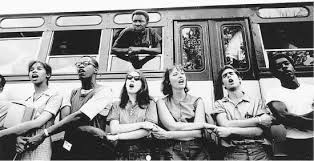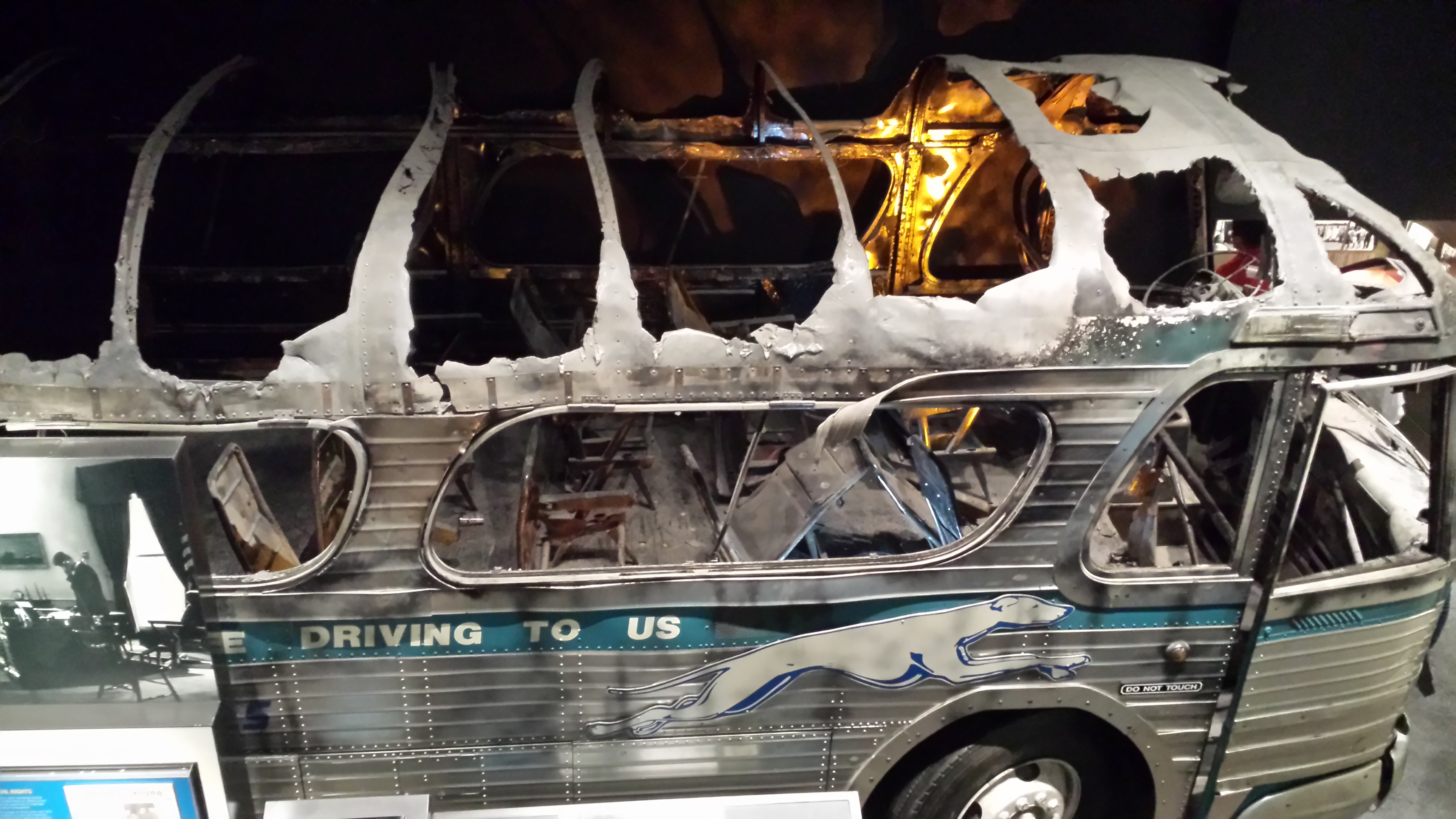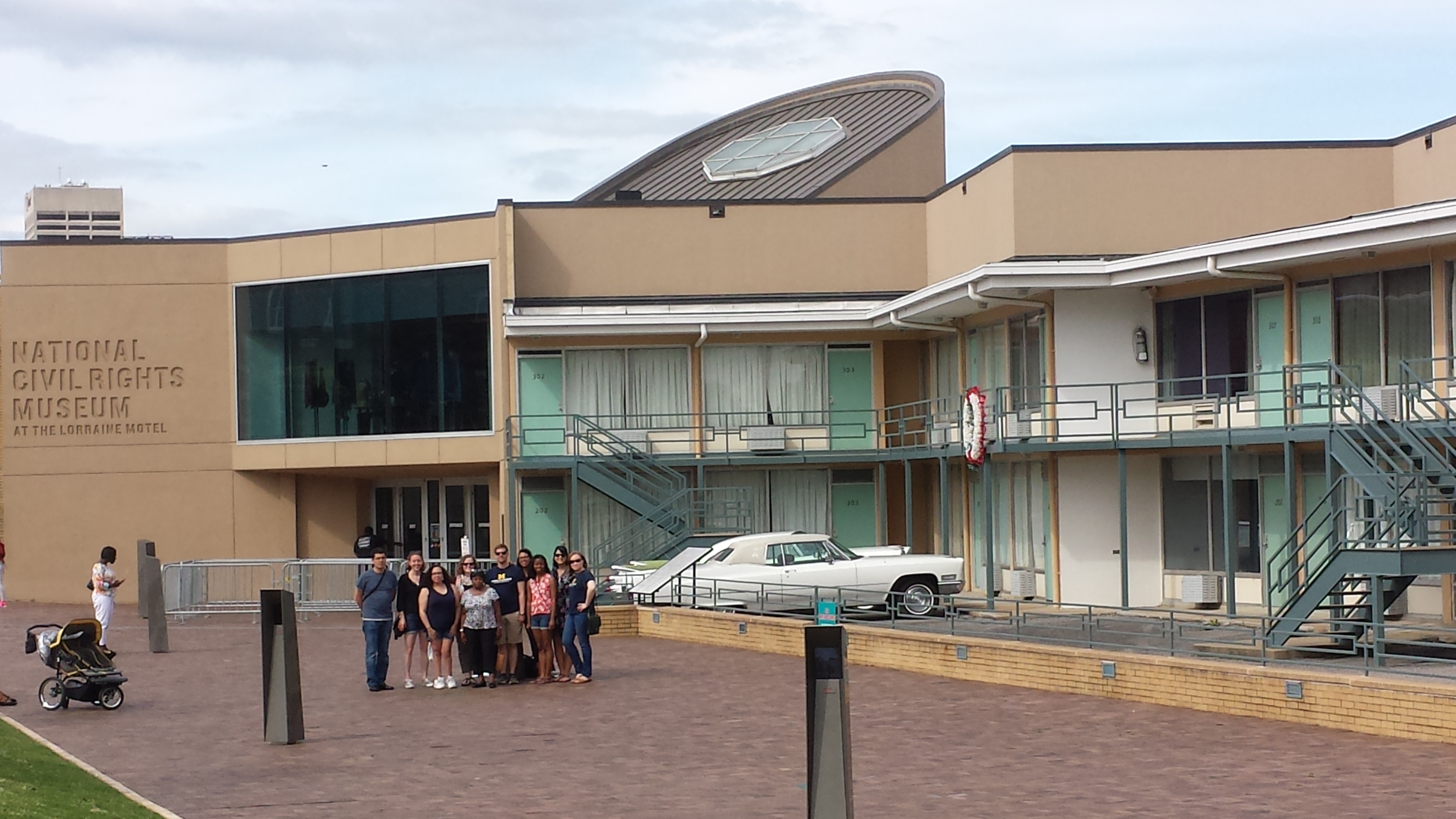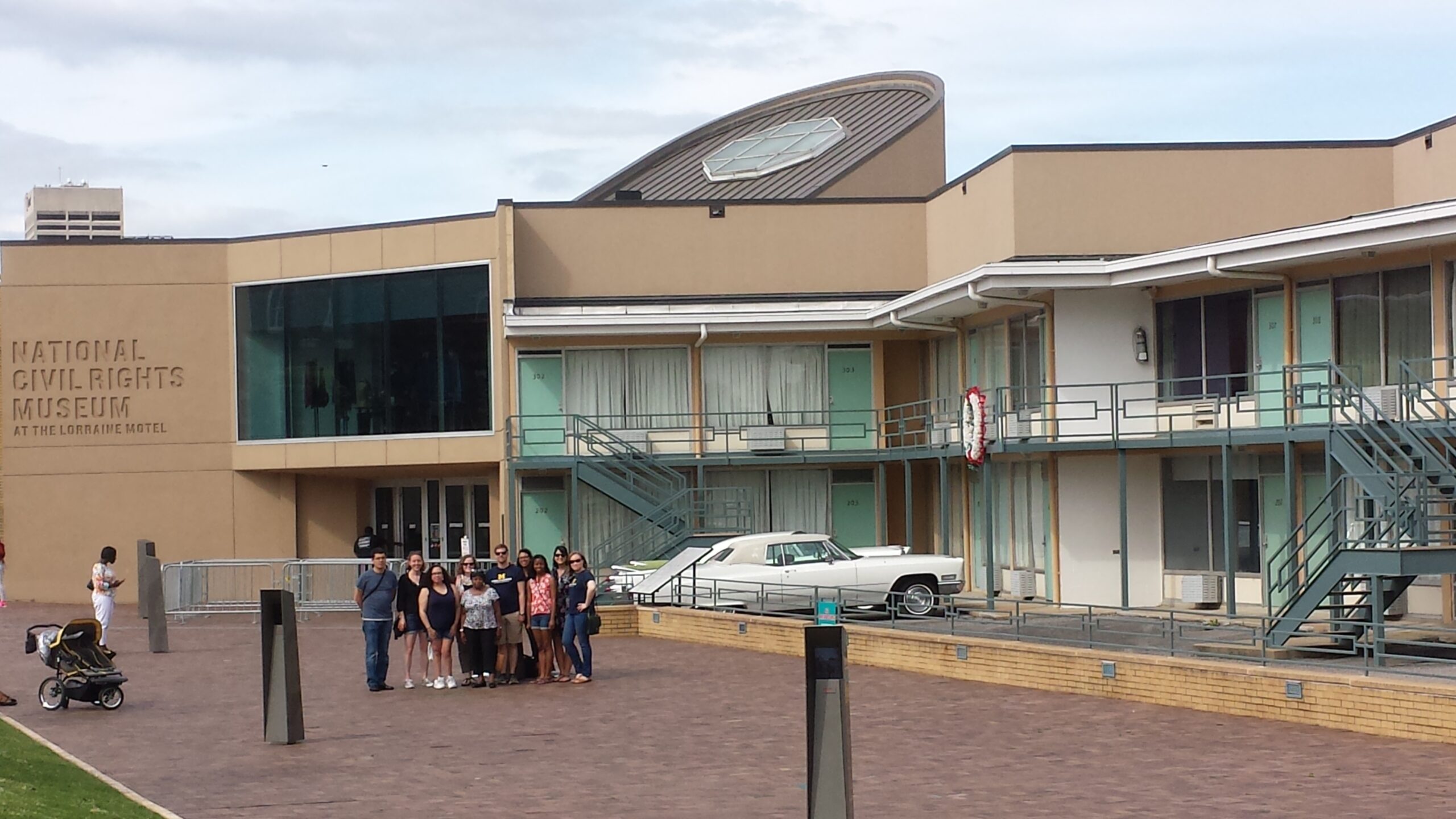An important aspect of this study tour is to consider how civil rights and social justice have been shaped by student activism. The National Civil Rights museum, located at the Lorraine Motel in Memphis, offers artifacts, films, oral histories, interactive media and external listening posts that guide visitors through five centuries of history — from the beginning of the resistance during slavery, through the Civil War and Reconstruction, the rise of Jim Crow, and the seminal events of the late 20th century that inspired people around the world to stand up for equality.


In 1968, Dr. Martin Luther King, Jr. was assassinated at the Lorraine Motel. The motel, built in 1925, originally was accessible only to whites. However, by the end of World War II, the Lorraine had become known as a “black” establishment. Among its early guests were Cab Calloway, Count Basie, and other prominent jazz musicians. In part due to its historical importance to the black community of Memphis, Dr. King chose to stay there in 1968 during the sanitation workers strike.
In advance of the study trip, the group watched and discussed the film At the River I Stand which chronicled the Memphis sanitation workers strike, Dr. King’s involvement, and the circumstances which led to his presence in Memphis on April 4, 1968.


